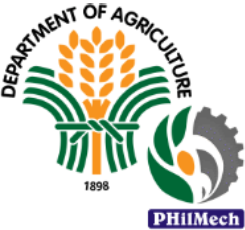PhilMech Privacy Notice
PhilMech is committed to upholding Republic Act No. 10173, otherwise known as the Data Privacy Act of 2012, to safeguard your privacy and protect your personal information.
Personal Information Collected
We collect the following personal information from you when you manually or electronically submit your inquiries, requests, comments, or complaints:
- Name
- Age
- Sex
- Email Address
- Region
Use of Collected Information
The personal information collected is used solely for documentation and processing purposes within PhilMech and is not shared with any external parties. These details enable PhilMech to:
- Properly address inquiries, requests, comments, or complaints.
- Forward these to the appropriate internal units for action and response.
- Provide clients or complainants with timely updates and advisories in a legitimate format and manner.
Website Analytics
PhilMech uses website analytics to analyze web traffic without the use of cookies. The data generated is anonymized and not shared with any third party. The non-identifiable web traffic data collected include:
- Originating IP address
- Search terms used
- Pages and internal links accessed
- Date and time of visit
- Geolocation
- Referring site or platform (if applicable)
Protection Measures
PhilMech ensures the security of your personal information through the following measures:
- Access is restricted to authorized PhilMech personnel.
- Data exchanges are facilitated only via secure email and hard copy formats.
- Data is stored in a database for two years after inquiries, complaints, or requests have been resolved. After this period:
- Physical records are securely stored and formally endorsed to the Records Office for systematic archiving and proper disposal in compliance with retention policies.
- Digital files are anonymized to remove any identifying information.
Changes to this Privacy Policy
This Privacy Policy is effective starting January 2025 and will remain in effect until revised. Updates to this policy will take effect immediately upon being posted on this website. Feedback on the policy is welcomed through the contact information provided below.
Rights of Data Subjects
Under the Data Privacy Act of 2012, individuals whose personal information is collected, stored, and processed are referred to as "Data Subjects." As a Data Subject, you have the right to:
- Request a copy of the personal information we hold about you.
- Request corrections or deletion of your personal information if you believe it is incorrect.
To exercise these rights, you may email us at data.privacy@philmech.gov.ph.
Feedback on Our Privacy Notice
If you have suggestions or feedback regarding our Privacy Notice, you may reach us at data.privacy@philmech.gov.ph.





